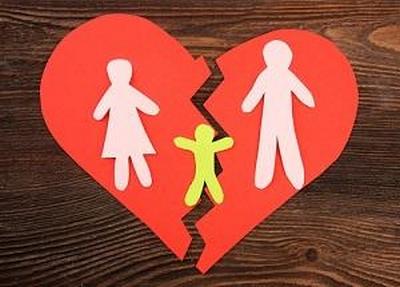Recent Blog Posts
Modification an Option if You Have Trouble Paying Child Support in Illinois

When a judge creates a child support order, the payments must arrive every month until the child reaches adulthood or is emancipated, adopted by a stepparent, or joins the U.S. military.
Life circumstances often change. People gain and lose employment, marry, and divorce, and health fluctuates up and down, all of which can have a significant impact on the financial well-being of a household. For many divorced parents, it is likely that at some point during the duration of child support payments, the order may require child support modification.
Mutual Agreement
If there is a significant change to the income or financial status of either parent, modification may be an option. Both parties can minimize court time if they reach an agreement about future child support payments, either temporarily or permanently. Both parties may draw up a written agreement, including their signatures, and send it to the judge for approval. If approved, the new terms are legally binding.
Addressing Retirement Plans in a Divorce
 When a couple is getting divorced, any retirement assets they may have are among the most critical assets to divide appropriately. Instruments like 401(k) accounts and pensions must be divided between the spouses, because most spouses will not have planned for retirement without at least some of those funds being present. However, unlike many other assets, it is not generally possible to simply split the proceeds of a retirement account down the middle. There is a specific procedure that must be followed under Illinois law to ensure that the asset is divided equitably.
When a couple is getting divorced, any retirement assets they may have are among the most critical assets to divide appropriately. Instruments like 401(k) accounts and pensions must be divided between the spouses, because most spouses will not have planned for retirement without at least some of those funds being present. However, unlike many other assets, it is not generally possible to simply split the proceeds of a retirement account down the middle. There is a specific procedure that must be followed under Illinois law to ensure that the asset is divided equitably.
Determining a Pension’s Value
Two factors go into determining the value of a pension for purposes of marital property division. The first is whether or not the pension is, in fact, marital property. Generally, the value of the pension that accrued during the marriage is considered marital property, and the value that was there beforehand is not. Some judges may hold that these funds have commingled, but such a determination is dependent upon the facts of your particular case.
Marriage Before Children Not as Important for Millennial Parents
 Sociologists and demographers often struggle to find a specific delineation between one acknowledged generation and the next. As such, it can be difficult for a single person to identify as a member of a “named” generation. The bigger picture, however, is often more clear, as the values, tendencies, and habits of a generation become evident even with a specific demarcation indicating the exact year in which that generation began. For example, the generation known as “millennials,” represents a large group of those born from the early 1980s to the late 1990s, at least according to generally accepted standards. As the millennials are now becoming parents, their views and approach to family life are beginning to impact overall social trends, including those regarding children before marriage and divorce.
Sociologists and demographers often struggle to find a specific delineation between one acknowledged generation and the next. As such, it can be difficult for a single person to identify as a member of a “named” generation. The bigger picture, however, is often more clear, as the values, tendencies, and habits of a generation become evident even with a specific demarcation indicating the exact year in which that generation began. For example, the generation known as “millennials,” represents a large group of those born from the early 1980s to the late 1990s, at least according to generally accepted standards. As the millennials are now becoming parents, their views and approach to family life are beginning to impact overall social trends, including those regarding children before marriage and divorce.
The Youthful Face of Change
Every generation represents a departure of sorts from those that preceded it, especially the previous two. Millennials are, for the most part, the children of Generation X, and the grandchildren of the Baby Boomers. Just as Gen Xers challenged the values of their Baby Boomer parents, with the introduction of punk, metal, and grunge music, and the rejection of more conservative religious, political and social views, the trend has continued with millennials. Nowhere has this been more obvious than in the dramatic shifts in family values and what millennials hold as important.
Things to Consider When Divorcing an Addict
 Tragically, addiction is something that touches millions of Americans’ lives every year. Drug and alcohol abuse, gambling addiction, and even compulsive shopping can rob a person of their joy, career, and even marriage. If you are considering leaving your spouse due to his or her addiction, you may feel lost, confused, and unsure of how to move forward with a divorce. The bad news is that divorcing an addict is often much more challenging than divorcing a person without addiction issues. The good news is that there are steps you can take to help prevent complications as well as protect yourself and your rights during the divorce process.
Tragically, addiction is something that touches millions of Americans’ lives every year. Drug and alcohol abuse, gambling addiction, and even compulsive shopping can rob a person of their joy, career, and even marriage. If you are considering leaving your spouse due to his or her addiction, you may feel lost, confused, and unsure of how to move forward with a divorce. The bad news is that divorcing an addict is often much more challenging than divorcing a person without addiction issues. The good news is that there are steps you can take to help prevent complications as well as protect yourself and your rights during the divorce process.
You Do Not Need to Prove Your Need for a Divorce
Television and movies have only added to the confusion surrounding separation and divorce. In many films, a spouse can be seen explaining how and why the other spouse created the need for the couple to divorce. In real life, you will never need to justify your desire to end your marriage. Illinois, along with every other U.S state, allows married spouses to file for divorce without specifying the “grounds” or reasoning for the separation. You will be able to file for divorce based on no-fault grounds. In Illinois the only official grounds for divorce is "irreconcilable differences," meaning that the marriage is irretrievably damaged and cannot be salvaged.
Orders of Protection in Illinois
 Domestic violence continues to plague millions of families throughout Illinois and around the country. Each year, an estimated 10 million women and men are subjected to physical abuse at the hands of an intimate partner, which averages to a shocking 20 per minute in the United States. According to the law in Illinois, domestic violence extends well beyond physical abuse, as the term also includes harassment, stalking, intimidation, and other forms of emotional and mental exploitation.
Domestic violence continues to plague millions of families throughout Illinois and around the country. Each year, an estimated 10 million women and men are subjected to physical abuse at the hands of an intimate partner, which averages to a shocking 20 per minute in the United States. According to the law in Illinois, domestic violence extends well beyond physical abuse, as the term also includes harassment, stalking, intimidation, and other forms of emotional and mental exploitation.
For many victims, filing for an order of protection is the first step toward seeking help and escaping an abusive situation. In Illinois, there are three types of orders of protection, and it is important to know how they each work.
Emergency Order of Protection
As the name implies, an emergency order of protection can provide immediate relief for a person who has been the victim of domestic violence or is afraid of becoming a victim. An emergency order of protection can be granted based solely on the sworn testimony of the victim if the court is convinced that the person is truly in danger or suffering emotional distress. The alleged abuser does not need to be notified in advance, nor is he or she required to appear. An emergency order can last for up to 21 days, enough time for a hearing to be scheduled regarding a more permanent solution.
When Your Parenting Time Has Been Restricted
 There is little question about the difficulty of parenting after a divorce, separation, or break-up. If you have been given significantly less parenting time than your child’s other parent, maintaining a meaningful relationship with your child can be even more challenging. But, what happens if the other parent convinces the court to restrict or limit your parenting time even further? An experienced family law attorney can help you understand what options you may have and work with you in taking the steps to restore your parental rights.
There is little question about the difficulty of parenting after a divorce, separation, or break-up. If you have been given significantly less parenting time than your child’s other parent, maintaining a meaningful relationship with your child can be even more challenging. But, what happens if the other parent convinces the court to restrict or limit your parenting time even further? An experienced family law attorney can help you understand what options you may have and work with you in taking the steps to restore your parental rights.
Grounds for the Restriction of Parenting Time
The governing principle of Illinois family law regarding children and parenting responsibilities is always to serve the child’s best interests. In doing so, the court begins with the presumption that active participation by both parents is best for the child, and, therefore, will allocate parenting time to each parent based on the family’s circumstances. Your parenting time cannot be restricted unless the other parent can show, by a preponderance of the evidence, that your behavior or lifestyle seriously endangers your child. These dangers can be to child’s mental, moral, or physical health, as well as to his or her emotional development.
Defending Against False Dissipation Claims
 Despite the inherent difficulties, most couples headed for a divorce are able to maintain a reasonable level of civility and personal responsibility. In some cases, on the other hand, the divorcing parties may be prone to making decisions that can negatively impact the proceedings. From a financial perspective, this may include wasting or dissipating marital assets, either out of spite or due to an attitude of apathy regarding the situation. Sadly, however, the emotional nature of divorce may also lead to accusations that are unfounded, so if your spouse has filed a groundless claim for dissipation, you will need to know how to protect yourself.
Despite the inherent difficulties, most couples headed for a divorce are able to maintain a reasonable level of civility and personal responsibility. In some cases, on the other hand, the divorcing parties may be prone to making decisions that can negatively impact the proceedings. From a financial perspective, this may include wasting or dissipating marital assets, either out of spite or due to an attitude of apathy regarding the situation. Sadly, however, the emotional nature of divorce may also lead to accusations that are unfounded, so if your spouse has filed a groundless claim for dissipation, you will need to know how to protect yourself.
What is Dissipation?
Dissipation, according to the law, is the wasting or inappropriate spending of a marital asset during or subsequent to the irretrievable breakdown of a marriage. The problem with dissipating assets is that doing so can directly impact many of the financial considerations of the divorce process. Spousal maintenance, property distribution, and child support are all dependent upon the assets, resources, and income of the interested parties. Wasted assets are, if not addressed and repaid, may not be taken into account as required, potentially tainting the outcome.
Divorcing Parents Must Submit a Parenting Plan to the Court
 In 2016, sweeping reforms were made to the family law statutes in the state of Illinois. One of the most notable changes was the elimination of the old idea of child custody and the introduction of a new way of thinking. This new approach is called the “allocation of parental responsibilities,” and it focuses in a positive way on how each parent will contribute to raising their children in the wake of a divorce or breakup.
In 2016, sweeping reforms were made to the family law statutes in the state of Illinois. One of the most notable changes was the elimination of the old idea of child custody and the introduction of a new way of thinking. This new approach is called the “allocation of parental responsibilities,” and it focuses in a positive way on how each parent will contribute to raising their children in the wake of a divorce or breakup.
Understanding Parenting Plans
Today, parents who are involved in a divorce—or, in fact, any proceedings that address the allocation of parental responsibilities—are expected by law to create a written parenting plan proposal. This expectation is set forth in the Illinois Marriage and Dissolution of Marriage Act (IMDMA). The IMDMA recognizes that an agreement between the parents is almost always preferable to litigation in the courtroom, so parents are statutorily encouraged to develop a workable agreement if at all possible. The parenting plan agreement must address a number of required concerns, including but not limited to:
Divorce May Have Health Risks for Women, Fewer for Men
 Divorce has long been linked with a variety of health effects. Increased stress and anxiety, for example, are common during and immediately following the divorce process, which, in some cases, can evolve into full-blown depression. In other situations, a divorce offers an escape from a bad marriage, allowing a once-trapped spouse to experience a renewed sense of freedom and hope—resulting in overall better personal health. It turns out, however, that divorce could be affecting women differently than it does men, at least in terms of heart health. According to a recent study, women who were divorced had a higher risk of suffering from heart attacks than divorced men, who had to go through a second divorce before their heart attack risk increases.
Divorce has long been linked with a variety of health effects. Increased stress and anxiety, for example, are common during and immediately following the divorce process, which, in some cases, can evolve into full-blown depression. In other situations, a divorce offers an escape from a bad marriage, allowing a once-trapped spouse to experience a renewed sense of freedom and hope—resulting in overall better personal health. It turns out, however, that divorce could be affecting women differently than it does men, at least in terms of heart health. According to a recent study, women who were divorced had a higher risk of suffering from heart attacks than divorced men, who had to go through a second divorce before their heart attack risk increases.
The study, which was published in the medical journal Circulation: Cardiovascular Quality and Outcomes, was conducted by researchers from the Duke Clinical Research Institute at Duke University. The team analyzed data gathered from more than 15,000 participants between the years 1992 and 2010. Each participant was between the ages of 45 and 80 and had been married at least once. At the beginning of the study, 14 percent of the men and 19 percent of the women were divorced. Eighteen years later, more than 35 percent of the entire group had been divorced at least once.
No-Fault Divorce Basics in Illinois
 A couple may decide to end their marriage for any number of reasons. In some situations, the spouses may have different philosophies regarding money or parenting strategies. In other cases, one partner could have destructive tendencies such as an inclination to be unfaithful or a history of physical or emotional abuse. Regardless of what drives a wedge between married spouses, the law in Illinois only permits a divorce on the no-fault grounds of irreconcilable differences.
A couple may decide to end their marriage for any number of reasons. In some situations, the spouses may have different philosophies regarding money or parenting strategies. In other cases, one partner could have destructive tendencies such as an inclination to be unfaithful or a history of physical or emotional abuse. Regardless of what drives a wedge between married spouses, the law in Illinois only permits a divorce on the no-fault grounds of irreconcilable differences.
A Modern Approach for Modern Families
For many years, Illinois law allowed either spouse to seek a divorce on about a dozen separate grounds. All but of one these were so-called “fault grounds,” which meant that if certain negative or destructive behaviors could be proven, the guilty spouse would be “at fault” for the divorce. Fault grounds included things like infidelity, repeated abuse, abandonment, substance abuse, and others.











 630-352-2240
630-352-2240



